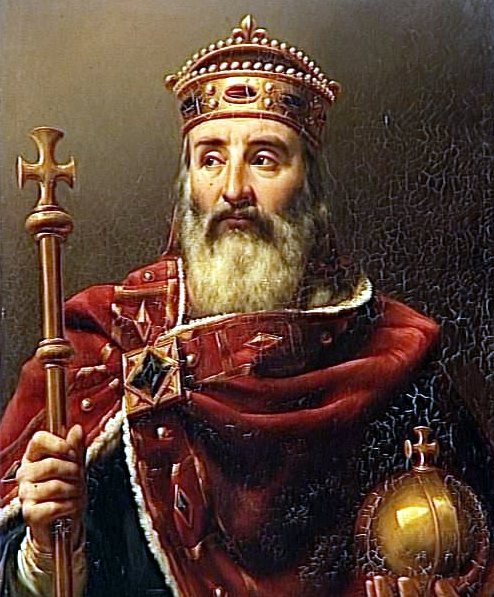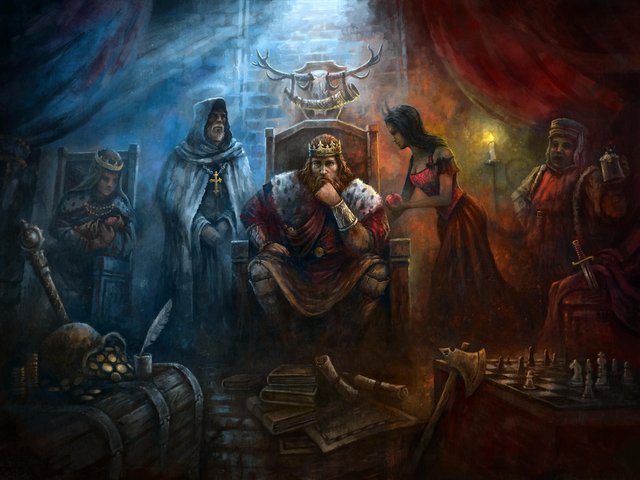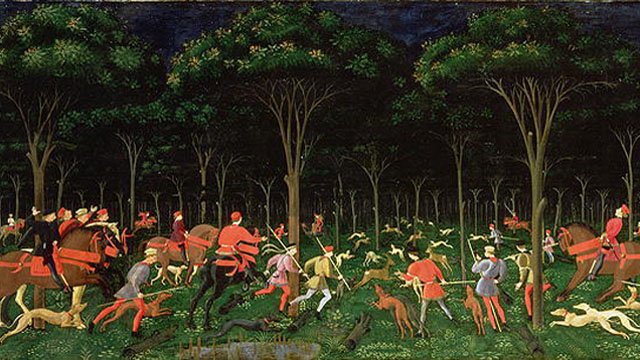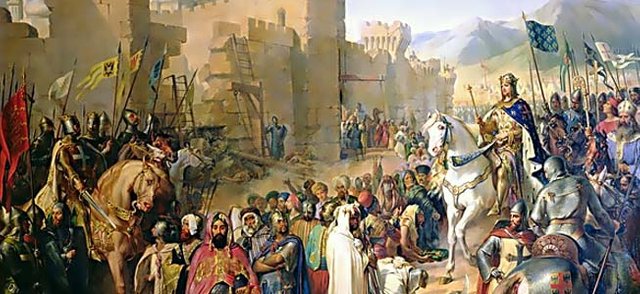Being A King in the Middle Ages
The first thing that probably comes to mind whenever a king is mentioned is the typical fairy tale king living in a fancy castle. And true enough, Medieval kings, like any other landholding noblemen of their time did indeed live in castles.
However, there was much more to a king's life than sitting on the throne in the hall of his castle. Kingship in the Middle Ages was, in fact, a hard physical work requiring considerable strength and endurance.
By modern standards, some would say it was hardly worth the privileges that the title of king awarded.
Medieval Political Landscape
During the Middle Ages, being a king is not that special. During this period, the whole of Europe is divided into smaller kingdoms and rulers over these kingdoms are on a constant pursuit to expand and grow their respective realm.
A king during the medieval period does not really differ from his subjects. Most likely, a king just wear clothing that doesn't have much difference tot the clothing of his subjects. A few symbols , perhaps a button or a pin and a scepter is what signifies his royalty. As for the golden crown, it's usually worn by the most powerful and wealthiest kings.
In the Middle Ages, quality iron products are very expensive that is why, a good sword and a chain mail was another form or testament of royalty and nobility.
Lastly, being good at combat and military ingenuity is among the very definition of nobility. It is expected that if you're a king, you should be adept in warfare and you are to lead your people to victory and even to the death. Weakness is just an imagination if you are to lead an army.
The Travelling Kings
When smaller kingdoms were conquered and integrated, medieval kings are having issues governing them. During this period, kings usually travel across his realm to not just collect tributes but to remind them as well that he is the king and the rightful person to govern over them.

This system was perfected by Charlemagne, who had numerous palatial estates constructed across his Frankish Empire to support himself and his court during these journeys.
A kingdom administered in this fashion did not have a capital city per se - the capital was wherever the king happened to reside at the moment. The informal capital of Charlemagne was Aachen, where he spent much of the late years of his life.
With the low development of infrastructure in Early Middle Ages, no traveler could expect his journeys to be comfortable, and the king was no exception. Settlements were few and far apart, and no new major roads had been constructed since the Roman times, so reaching a distant town or castle would often require traveling off-road.
Added to the lack of comfort was the ever-present threat of an attack by enemies or brigands, or by wild animals. If no shelter could be found by nightfall, the king and his retinue would have to camp outside. Often, the only available shelter was the hut of a poor peasant family. In many cases, when food was scarce, only the king could expect to have dinner of any kind.
Battle with Boredom
Even when a Medieval king wasn't on the move, his time was far from leisurely. While kings did indeed hold banquets and tournaments, these events were clearly not an everyday occurrence due to expenses involved. Boredom was a particular enemy to people of all social classes in winter, when the few roads often became accessible and castles and towns would often have to spend months in isolation.
A common pastime for noblemen of the day was hunting. When the weather was forbidding, the kings would resort to other forms entertainment. Board games like chess were well-known among European nobility.
Since the castles were poorly heated, the king and his courtiers would usually spend much of their time in the hall near the great fireplace, entertaining themselves by reciting legends and fairy tales.
Any visitor was a welcome guest, as they often brought news from afar and knew new stories to tell. Likewise, musicians, jugglers and other entertainers were often hired to perform at the king's court.
Family Life
Family life and marriage for European nobility was absolutely nothing close to happiness as we would imagine today. The nobles themselves did not believe that family was meant to provide happiness, rather seeing it as a duty. Primarily it meant entering arranged marriages with influential families.
A king could marry away his daughter to a powerful duke whose loyalty he needed to secure, or have his son marry a foreign princess to secure a truce or alliance with her royal house.
The youngsters that were so put into marriage didn't object for most part - occasions when a young girl was married to an old man were generally avoided. Instead, it was common to negotiate marriages between young children for years ahead, so the two could be raised with the idea they would one day be married. Of course, many such marriages also became ones of genuine love.
This approach to family affairs was not limited to arranged marriage. Noble parents would often have somebody else nurse and raise their child. Many a king was breast-fed by a hired peasant nurse rather than his own mother as an infant. Likewise, it was common practice to send older children away as foster-lings, as it was believed foster parents would not spoil them.
Many noblemen would see their biological parents only a few times in their lives - Richard I Lionheart is but one example. A son of a king would likely hardly ever see his father, who was probably busy leading wars or traveling about to administer his realm, and instead grow up under tutelage of a trusted nobleman.
Conclusions
Overall, the life of a Medieval king was not an easy one, clearly unlike the idealized and leisurely life commonly seen in fairy tales. While a king did indeed command many privileges that could create such an impression in the minds of the common folk, the royal crown was not the weight any man could bear.
Successful reign demanded not only good management and diplomatic skills, and military prowess, but also a good deal of cynicism and cruelty - a king of the day often had to be capable of condemning even a close relative to death if he wished to remain in power, and capable to sacrifice his individual happiness, such as a marriage of love, in favor of politically-advantageous decisions.
The great kings of Middle Ages were seldom happy in their lives, and more often than not were betrayed by those they trusted the most.






You have been upvoted by the @sndbox-alpha! Our curation team is currently formed by @jeffbernst, @bitrocker2020, @jrswab & @teachblogger . We are seeking posts of the highest quality and we deem your endeavour as one of them. If you want to get to know more, feel free to check our blog.
Sneaky Ninja Attack! You have just been defended with a 4.22% upvote!
I was summoned by @wdoutjah. I have done their bidding and now I will vanish...
woosh
A portion of the proceeds from your bid was used in support of youarehope and tarc.
Abuse Policy
Rules
How to use Sneaky Ninja
How it works
Victim of grumpycat?